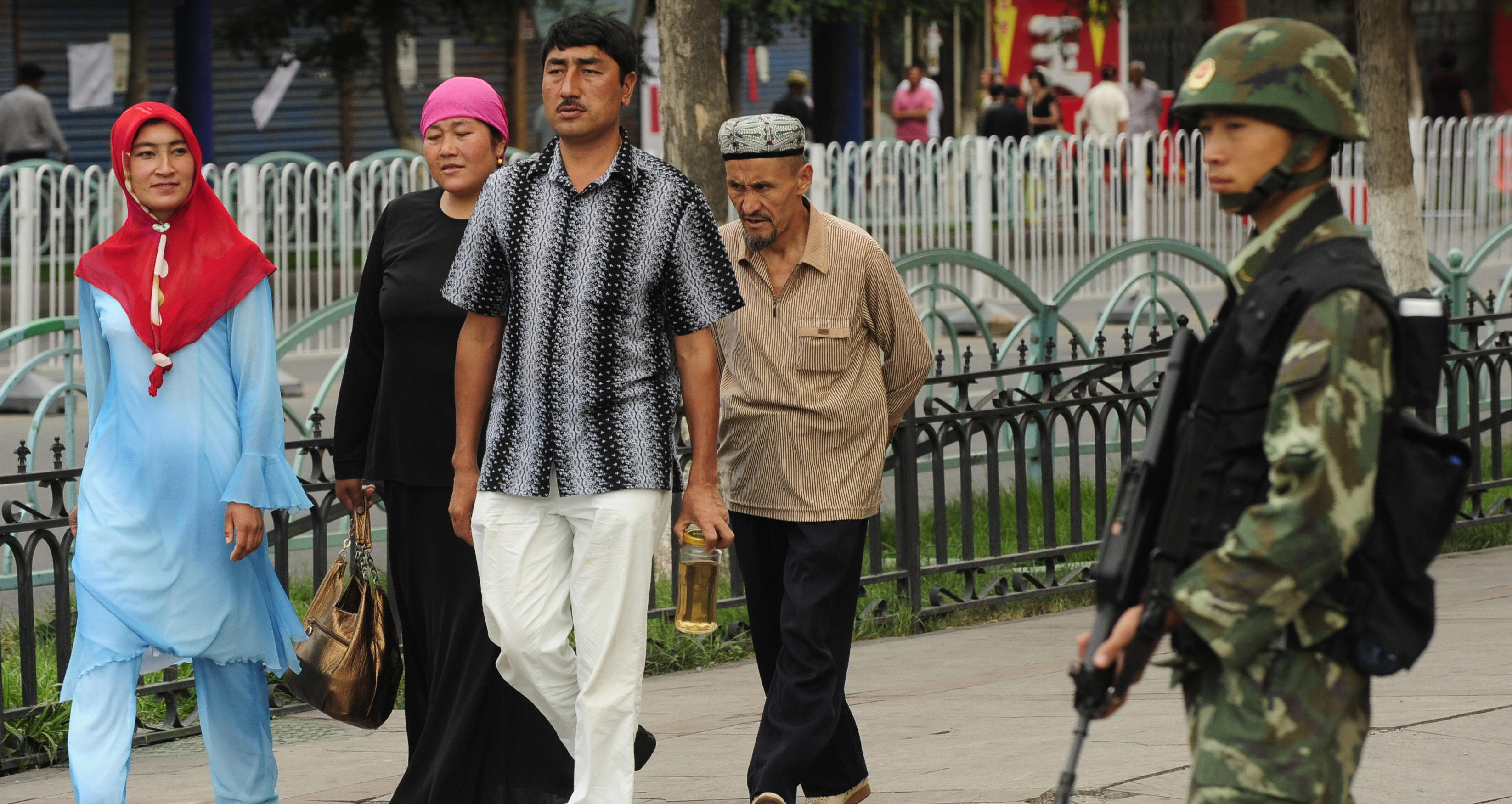The Muslim world can no longer ignore China’s persecution of Uighurs

China is undoubtedly a colossus on the world stage — and its rise is far from over. The nation will continue to grow in influence and relative power in international affairs for at least the next two decades. This means that the choices smaller countries make now about how to engage with this developing reality will greatly influence their future for the rest of this century.
So then, the question is what are we to do when this emerging colossus persecutes the indigenous majority Muslim Uighurs in its western province of Xinjiang? This has also affected other Muslim minorities, including the Kazakhs and the Kyrgyz.
This is a matter that is especially pressing for the Muslim world. The heartlands of the Islamic world are close neighbors of China, and therefore particularly affected by Beijing’s geopolitical designs for the 21st century. Take the Belt and Road initiative, for example, which aims to build the trade infrastructure that will dominate economic and political relationships on the Eurasian mainland for the rest of the century and will mostly pass through lands in the Muslim world.
The economic fortunes of countries in the Middle East will be inextricably linked to Belt and Road for the foreseeable future. Yet at the same time, China is engaged in policies of cultural eradication that target Muslims inside its borders, to the ridiculous extent of laws banning Islamic religious names. With the mass incarcerations and “re-education” efforts being carried out by Beijing, what we are seeing in Xinjiang is no longer a “domestic matter.” We are now in the realm of crimes against humanity as defined by international law.
This is to say nothing of the long-standing tradition in the Muslim world of leaders speechifying about the Ummah and “Muslim solidarity.” After decades of anti-Western rage based on real or perceived slights to Islam and Muslims, the leaders of the Muslim world have been shockingly acquiescent to Beijing’s narrative. Not only has Muslim leader after Muslim leader failed to speak up against what is happening to the Uighurs, many have gone as far as to actively and publicly defend the actions of China in Xinjiang.
But what else are they to do if they are to best serve their own citizens and the economic prospects of their own countries?
It is true that China has shown itself both willing and able to use checkbook diplomacy, and to pit countries against each other as they seek to curry favor with Beijing. So long as each of the nations in the Muslim world considers its relationship to China in isolation, they have no chance to resist Beijing’s demands.
Yet considered together as a bloc, the Muslim world remains one of the most formidable constituencies on the planet. It is comparable in strength and leverage to the US and China, and certainly competitive with India or the EU.
This bloc is not typically relevant in global politics, however, because Muslim countries are too busy fighting each other. The political elite of many Muslim countries in the Middle East are driven by hard-line sectarianism.
With the mass incarcerations and ‘re-education’ efforts being carried out by Beijing, what we are seeing in Xinjiang is no longer a ‘domestic matter.’
Dr. Azeem Ibrahim
But if the Muslim world should be able to agree on anything, it is that the genocide of Muslims is a bad thing — even if that genocide is still in its incipient phase, as in Xinjiang, and seems to be mostly cultural in nature.
We even have a very recent precedent for this. Gambia, as a member of the Organization of Islamic Cooperation (OIC), this month announced that it is referring Myanmar to the International Court of Justice (ICJ) on charges of genocide against Rohingya Muslims.
The Rohingya lived in Myanmar, not in China proper, but Myanmar is increasingly a Chinese client state, and native Rohingya lands are adjacent to major Belt and Road construction projects linking southern China to the port of Sittwe in the Bay of Bengal.
The OIC has been typically slow to organize a united response even to this bona fide genocide against Muslims in Myanmar, but after Gambia’s action at the ICJ, they have started to rally around the issue. It turns out that, against all odds, something like Muslim solidarity is indeed still possible.
With this precedent in mind, the countries of the Muslim world cannot continue to skirt the Uighur issue. Yes, China will be displeased but Beijing has to build its Belt and Road somewhere. If the OIC countries stand together on this issue and do not allow China to divide and conquer, the Muslim world, within the framework of the OIC, can exert significant leverage.
The truth of Belt and Road is that China needs it as much as the countries of the Middle East need it. Even Beijing should be able to agree that the safety and security of the Uighurs as a distinct ethnic and religious group in their native lands in Xinjiang is a price worth paying for the success of its grand infrastructure project.
- Dr. Azeem Ibrahim is a director at the Center for Global Policy and author of “The Rohingyas: Inside Myanmar’s Genocide” (Hurst, 2017). Twitter: @AzeemIbrahim









































